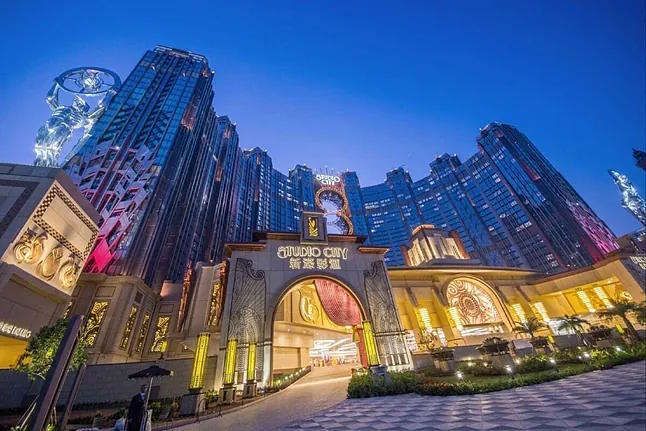Every night, over the Macao peninsula, the casinos light up like artificial constellations, turning the city into a board of light dominated by a random fate that is the identity, wealth, and curse of a place that has been China's playground for half a century.
Prosperity fueled by gambling is no longer sufficient in the former Portuguese colony. The pandemic, which silenced the sound of chips that support 80% of an economy without foundations beyond chance, was the first warning.
Then, from Beijing, the ruling Communist Party, which had long been wary of Macao's extreme dependence on the gambling industry, issued an ultimatum: diversify the economic model or disappear.
The first thing the local authorities did was to try to better promote the tourist appeal of their Sino-Portuguese heritage, of their baroque churches next to Taoist temples. Then, the bet began to become a fertile ground for artificial intelligence and biotechnology companies, to be a new major innovation center, which is what Beijing wants in search of coveted technological self-sufficiency.
The third pillar is medical tourism. This is where the latest dazzling inauguration comes in: a tourist hospital within a luxury resort, which is inside a casino, the Studio City in Macao.
This week marked the opening, and local media have touted it as the first of its kind in the world: a hospital resort with MRI and CT scan equipment, where tourists, amidst slot machines and the spa, can undergo everything from comprehensive medical exams to even plastic surgery.
The resort is owned by Melco Resorts and Entertainment, a hotel chain based in Hong Kong. Its CEO, the billionaire Lawrence Ho, has explained in recent days that the new hospital is a "revolutionary concept" aimed at attracting tourists from around the world. "Macao, which attracts nearly 40 million visitors a year, offers an unparalleled opportunity to become a leading destination for medical tourism," he stated.
"This project aligns with Macao's economic diversification strategy," Ho continued. The multinational he heads is one of the six managing casinos in the city - mostly American-owned - to which the Chinese government pressured last year to invest $13 billion - under threat of not renewing licenses - in non-gambling-related projects.
Macao, a former Portuguese colony for over 400 years before its handover to China in 1999, operates under the one country, two systems model, the same as neighboring Hong Kong, which guarantees a high degree of autonomy for 50 years. The local government retains high powers regarding laws and finances, while Beijing handles security, propaganda, and foreign policy. This allows Macao, unlike the rest of China, to remain the world's gambling hub, ahead of Las Vegas in terms of gross revenue. Last year, according to official data, gambling revenue in Macao increased by about 25%. The economy, on the other hand, expanded by 8.8%.
There are 24 casinos on the peninsula, connected to the island of Taipa, which boasts its own Strip like Las Vegas: 17 casinos spread along a vast avenue, Cotai Strip, lined with replicas of the Eiffel Tower, the British Parliament, Big Ben in London, and the canals of Venice, where the impressive Venetian Macao stands, the city's top attraction.
Macao having its own currency (the pataca, although the Hong Kong dollar is also accepted) has allowed high rollers, including many Chinese officials and businessmen, to routinely bypass capital outflow controls by Beijing, as well as use casinos for money laundering.
It was a former smuggler, Stanley Ho, who led this Chinese autonomous region to strive to outshine Las Vegas in the gambling industry. The tycoon, who passed away in 2020 at the age of 98, began opening venues during Portuguese rule and eventually controlled around twenty casinos in Macao, although he lost his monopoly in 2002 when the city welcomed other operators from the US, like billionaire Sheldon Adelson.
